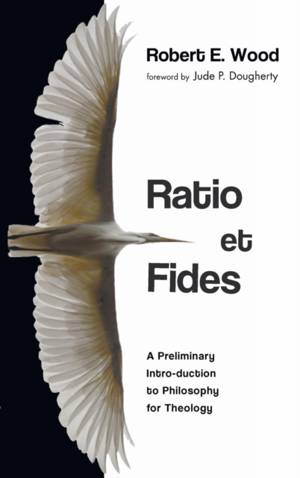
- Retrait gratuit dans votre magasin Club
- 7.000.000 titres dans notre catalogue
- Payer en toute sécurité
- Toujours un magasin près de chez vous
- Retrait gratuit dans votre magasin Club
- 7.000.0000 titres dans notre catalogue
- Payer en toute sécurité
- Toujours un magasin près de chez vous
Ratio Et Fides
A Preliminary Intro-Duction to Philosophy for Theology
Robert E Wood
Livre relié | Anglais
69,45 €
+ 138 points
Format
Description
In the face of growing skepticism and relativism, "believe in reason" is the central message in Pope John Paul II's Fides et Ratio. Only by the two wings of reason and faith together can the human spirit soar. The current work, Ratio et Fides, is its philosophical counterpart. It is not a watered-down introduction but a "leading-into" the heart of philosophic thinking. Firmly rooted in the phenomenological description of an ordinary artifact, a mailbox, the book uses the principles involved in the description to examine key figures in the history of thought. We focus on three areas: the Soul, Morality, and God. We consider seven thinkers. Plato and Aristotle, who founded the tradition, were taken up by Augustine and Aquinas in developing their theologies. Descartes launched the distinctively modern tradition, culminating in Hegel's systematic presentation of the whole Western tradition, philosophical and religious. More recently, Heidegger approached that tradition in terms of its hidden ground in the Mystery of Being, recalling us to meditative thinking as the secular counterpart to prayer. Armed with this background, students will be able to approach with profit the Fathers of the Church and major theologians and philosophers, past and recent.
Spécifications
Parties prenantes
- Auteur(s) :
- Editeur:
Contenu
- Nombre de pages :
- 210
- Langue:
- Anglais
Caractéristiques
- EAN:
- 9781498245937
- Date de parution :
- 09-10-18
- Format:
- Livre relié
- Format numérique:
- Genaaid
- Dimensions :
- 152 mm x 229 mm
- Poids :
- 453 g

Les avis
Nous publions uniquement les avis qui respectent les conditions requises. Consultez nos conditions pour les avis.






